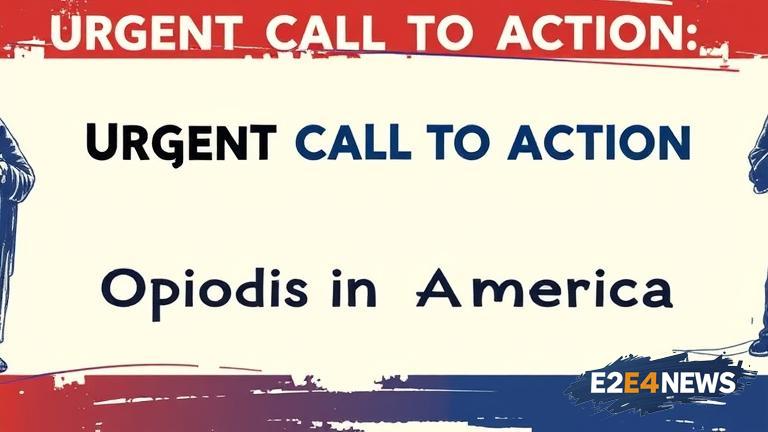The opioid crisis has been a longstanding issue in the United States, with devastating consequences for individuals, families, and communities. Despite efforts to address the problem, the crisis persists, and it is imperative that policymakers and stakeholders take bold and comprehensive action to combat this epidemic. The statistics are alarming, with tens of thousands of Americans dying from opioid overdoses each year, and many more struggling with addiction. The economic burden of the crisis is also significant, with estimated costs in the hundreds of billions of dollars. Furthermore, the opioid crisis has far-reaching social and emotional impacts, affecting not only those struggling with addiction but also their loved ones and the broader community. It is essential that we acknowledge the complexity of the issue and the need for a multifaceted approach to address it. This includes increasing access to evidence-based treatment, such as medication-assisted therapy, and expanding support services for those in recovery. Additionally, there must be a concerted effort to reduce the supply of illicit opioids, including fentanyl and other synthetic opioids, which are often laced with other substances and can be deadly. Law enforcement agencies, healthcare providers, and community organizations must work together to identify and address the root causes of the crisis, including overprescription of opioids and lack of access to mental health services. Moreover, it is crucial that we prioritize prevention and education, particularly among young people, to prevent the onset of addiction. This can be achieved through school-based programs, public awareness campaigns, and community outreach initiatives. We must also recognize the importance of addressing the social determinants of health, such as poverty, housing instability, and lack of access to healthcare, which can contribute to the risk of addiction. By taking a comprehensive and compassionate approach, we can begin to turn the tide of the opioid crisis and create a safer, healthier, and more supportive environment for all Americans. The time for action is now, and it is imperative that we work together to develop and implement effective solutions to this pressing public health issue. We owe it to ourselves, our loved ones, and our communities to take bold and immediate action to combat the opioid crisis. The consequences of inaction will be dire, and it is our collective responsibility to ensure that we do not fail those who are struggling with addiction. We must be willing to invest in evidence-based solutions, support innovative approaches, and prioritize the needs of those most affected by the crisis. Only through a sustained and collaborative effort can we hope to overcome the opioid crisis and build a brighter future for all Americans. The opioid crisis is a national emergency that requires a national response, and it is time for us to come together to address this issue once and for all. We must be guided by the principles of compassion, justice, and equality, and we must be willing to challenge the status quo and push for meaningful change. The stakes are high, but with courage, determination, and a commitment to collective action, we can overcome the opioid crisis and create a safer, healthier, and more just society for all. It is time to act, and it is time to demand that our leaders take immediate and effective action to address this crisis. We will not be silenced, and we will not be ignored. We will continue to push for change, and we will continue to demand that our leaders prioritize the needs of those struggling with addiction. The fight against the opioid crisis is far from over, but with persistence, dedication, and a commitment to justice, we can emerge victorious and create a brighter future for all Americans.
